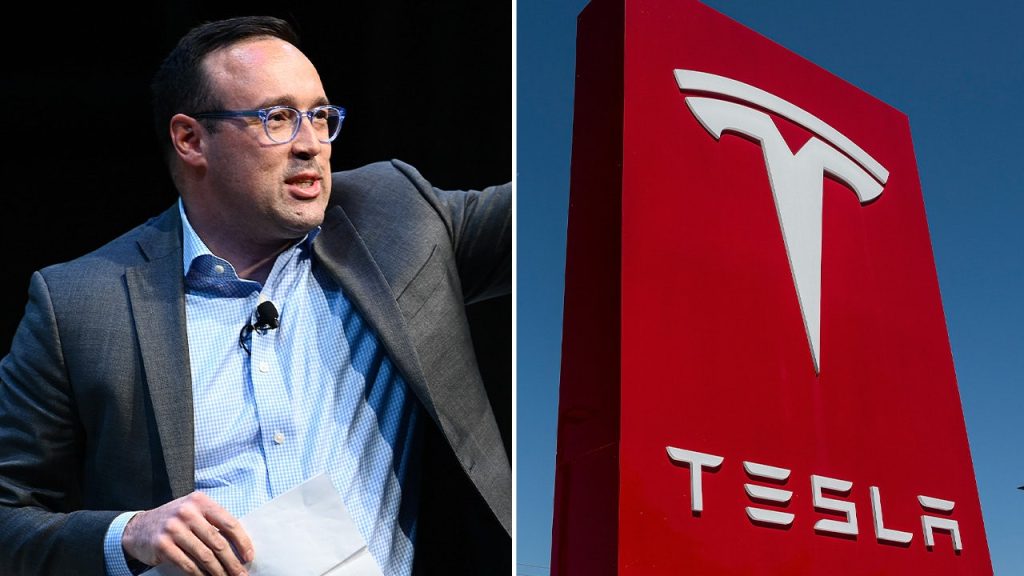In a recent reflection, former journalist Chris Cillizza discussed the complexities of political affiliations tied to consumer products, notably his own experience with his Tesla vehicle. Following an incident at his son’s soccer tournament where a sign reading “Musk is a Nazi” was taped to his car, Cillizza highlighted the increasing politicization of everyday life and the repercussions it has on social interactions. His critique emphasizes how owning products associated with strong political figures or movements complicates personal identity and divides public perception.
| Article Subheadings |
|---|
| 1) Background of the Incident |
| 2) Reflection on Political Polarization |
| 3) The Meaning of Ownership |
| 4) Corporate Responsibility and Personal Values |
| 5) The Broader Implications for Society |
Background of the Incident
The incident in question occurred during a soccer tournament where, unbeknownst to him, Chris Cillizza faced an unexpected political statement attached to his Tesla. The sign labeling Elon Musk as a “Nazi” signifies a broader societal trend where individual belongings are used as canvases for political expression. This reflects the contentious relationships many Americans have with symbols that carry heavy political weight.
This act did not merely serve to critique Musk but rather positioned Cillizza’s car as a focal point for broader political discourse, emblematic of the polarization that permeates contemporary society. It raises questions about ownership and the increasing tendency for personal items to be politicized, especially in light of Musk’s controversial public persona as the head of Tesla.
Reflection on Political Polarization
In his commentary, Cillizza expressed a sense of disillusionment regarding the growing divide among Americans stemming from such incidents. He described his sentiments of confusion regarding the political implications of owning a Tesla, identifying how this shift mirrors the larger political climate in the United States. Where once Tesla ownership might have aligned an individual with eco-liberal ideologies, it now paints them as a target for partisanship.
Cillizza’s fears resonate with many in today’s society, where political affiliation dictates social interactions and impacts personal brands. He observed how the conversation around consumer goods has shifted from personal choice to public statement, creating an environment where individuals feel compelled to defend or explain their affiliations and lifestyles.
The Meaning of Ownership
The core of Cillizza’s argument revolves around the intrinsic value of personal items. He argues that attributing political significance to consumer products may be misguided. In discussing his experience, he remarked,
“Five years ago, my Tesla symbolized everything MAGA world hated. But now it symbolizes everything the left hates?”
This rhetorical device illustrates the irony of politicizing an object that, for many, is simply a mode of transportation.
He articulated a yearning for a time when possessions could be devoid of political baggage, advocating for the notion that products should serve utilitarian purposes rather than embody political statements. Cillizza urges society to reconsider these expectations and allow for varied interpretations rather than heated assumptions based on ownership.
Corporate Responsibility and Personal Values
Cillizza’s neutral stance on corporate endorsements provoked discussions on the morality of supporting companies with controversial leadership. He posits that consumers should not feel obligated to validate a company’s political stance through their purchases. Cillizza stated,
“Breaking news: Giant corporations tend to do what makes them the most money, not always what’s ‘right.’
By this view, the narrative around consumerism drastically alters the concept of ethical purchasing as it pushes people to disengage based on the ethical failings of a corporation’s founder.
His perspective sheds light on the complications of voting with one’s wallet, encouraging individuals to assess their purchasing decisions based on necessity rather than political ideology. In a world where corporate behavior is intricately linked to personal identity, navigating such decisions becomes an increasingly daunting task.
The Broader Implications for Society
Cillizza ultimately warns against the “obsession with making every little bit of our lives into a political statement” with concerns that this inclination drives humanity further apart. He noted that the fracturing of societal norms has made it almost impossible for individuals to share common experiences without political overtones overshadowing them. He posited that this trend hinders the recognition of shared humanity, as every interaction becomes a contested ideological battlefield.
This recurring theme resonates through various facets of American life, suggesting that the consequences of politicization extend beyond individualized incidents and into the very fabric of community interactions. Cillizza’s sentiment serves as an urgent reminder to reassess how political identities are constructed through external symbols.
| No. | Key Points |
|---|---|
| 1 | The sign on Cillizza’s car reflects growing political tensions in America. |
| 2 | Cillizza questions the repercussions of attaching political meaning to consumer goods. |
| 3 | He associates the recent shift in Tesla’s public perception with broader political polarization. |
| 4 | Cillizza emphasizes personal ownership should be disassociated from political affiliations. |
| 5 | He warns against the dangers of living in a world where every choice becomes politically charged. |
Summary
Cillizza’s insights shed light on the complexities arising from the intersection of consumerism and political identity. As society grapples with the ramifications of political tribalism, recognizing the impact of consumer choices on personal identity can foster dialogue rather than division. The broader implications for community and shared understanding are vital considerations as we navigate an increasingly polarized landscape.
Frequently Asked Questions
Question: What did the sign taped to Cillizza’s Tesla state?
The sign read “Musk is a Nazi,” serving as a polarizing statement on the political affiliations connected to Tesla and its CEO, Elon Musk.
Question: How does Cillizza feel about the current political climate?
Cillizza expresses frustration with the increasing politicization in daily life, suggesting it divides society and complicates personal identities.
Question: What does Cillizza mean by consumer items becoming political statements?
He argues that products like Tesla cars, once neutral, have become symbols reflecting partisan identities, which complicates ownership and societal interactions.
